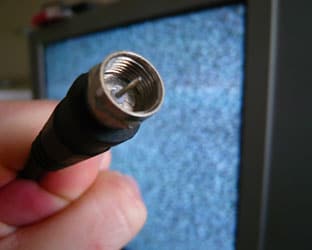Cheryl Leanza, Policy Director, The Office of Communication of the United Church of Christ, Inc., used the FCC public interest ownership workshop to set her sights on the increasing use of shared services agreements (SSAs) in local television markets.
She noted that they are used to form virtual duopolies. The loophole that makes them possible, the rule stating that the service provider may program no more than 15% of the station’s programming, allows it to control the only truly important portion of that station’s programming – its local news.
She was also not pleased that SSAs are frequently used to combine two of the top four stations within a given local market, something that is expressly forbidden in markets large enough to support an actually owned-and-operated duopoly.
Media Access Project’s Andy Schwartzman agreed that addressing television SSAs should be a major part of the FCC’s review of ownership rules.
RBR-TVBR observation: The watchdogs are correct in observing that SSAs are increasingly in use in the television business, which missed out on an opportunity to consolidate locally under Telecom 1996, just as LMAs were increasingly used by radio prior to its first round of ownership deregulation way back in 1992.
The recently-formed SSA in Honolulu has created a major local conflict, and scrutiny of that situation could easily have a spillover affect on similar arrangements in DMAs large and small all over the US. It may not take the ownership review to spur close scrutiny of SSAs at the FCC – but the review makes it even more likely that they will be put in the spotlight.
Clearly, a lot of television operators will be profoundly affected if SSAs come under serious attack. The time to start preparing an ironclad defense of the practice is right now.
This is true unless you happen to be a broadcaster whose life has been made more difficult by an SSA struck crosstown between two of your competitors. This issue can be seen as a watchdog v. broadcaster issue, but it also could be seen as broadcaster v. broadcaster. Any thoughts?




